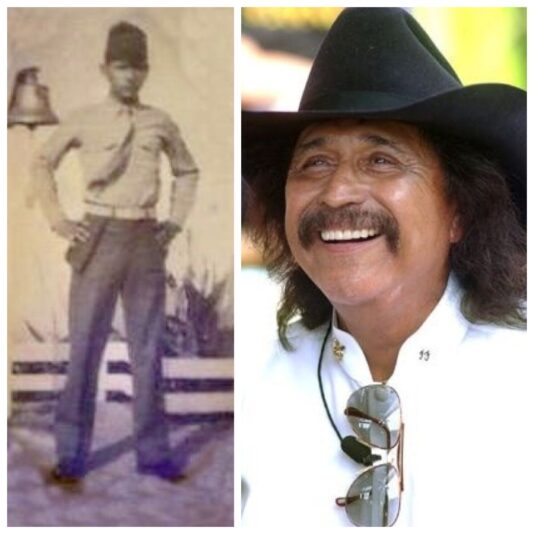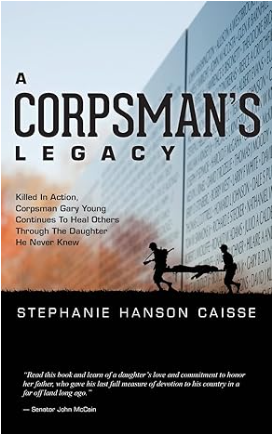In the realm of iconic musical figures, Freddy Fender’s name stands tall. Born as Baldemar Huerta on June 4, 1937, in San Benito, Texas, Fender would go on to achieve legendary status as a musician, leaving an indelible mark on the world of music. Yet, before he enchanted audiences with his soulful voice and hit songs, Fender’s life took a detour through the United States Marine Corps.
 Growing up in a Mexican-American household, Baldemar Huerta discovered his passion for music at an early age. He taught himself to play the guitar and sang in both Spanish and English, blending the musical traditions of his heritage with the American sounds he encountered.
Growing up in a Mexican-American household, Baldemar Huerta discovered his passion for music at an early age. He taught himself to play the guitar and sang in both Spanish and English, blending the musical traditions of his heritage with the American sounds he encountered.
However, Fender’s path to musical stardom was not a direct one. In 1953, he joined the United States Marine Corps and put his musical aspirations on hold. Serving in the Marine Corps provided Fender with discipline, structure, and a sense of duty to his country. It was during his time in the Marines that he adopted the nickname “Freddy.”
After his honorable discharge from the Marine Corps, Freddy Fender’s passion for music was reignited. He began performing with local bands and gaining recognition for his unique blend of rock, country, and Tejano music. His bilingual talents allowed him to reach audiences on both sides of the cultural divide, and his soulful voice struck a chord with listeners around the world.
In 1959, Fender recorded his first hit single, “Wasted Days and Wasted Nights.” The song’s success marked the beginning of his journey to stardom. Subsequent hits like “Before the Next Teardrop Falls” and “Secret Love” solidified his reputation as a versatile and emotive singer.
Freddy Fender’s rise to fame was accompanied by personal struggles. He faced legal issues and battles with addiction, which at times affected his career. Despite these challenges, Fender’s talent and resilience prevailed, and he continued to captivate audiences with his performances.
One of the most remarkable chapters in Fender’s career came in the 1990s when he experienced a revival of his popularity. He received a Grammy Award in 1990 for Best Mexican-American Album, reigniting interest in his music. This recognition not only honored his contributions but also introduced his music to a new generation of listeners.
Freddy Fender’s impact on the music industry goes beyond chart-topping hits. His ability to blend genres and languages made him a trailblazer, bridging cultural divides and uniting audiences. He is often credited as one of the pioneers of Tex-Mex music, a genre that fuses traditional Mexican sounds with American country and rock influences.
Sadly, Freddy Fender’s journey came to an end on October 14, 2006, when he passed away due to complications from lung cancer. However, his legacy lives on through his timeless music and the mark he left on the hearts of fans worldwide.
While Freddy Fender’s time in the Marine Corps might have seemed like a departure from his musical dreams, it undoubtedly shaped his character and contributed to his eventual success. The discipline, dedication, and sense of duty he learned as a Marine remained with him throughout his life and career. From serving his country to serenading the world with his music, Freddy Fender’s legacy continues to resonate with audiences, reminding us that the paths we take can lead to unexpected and beautiful destinations.
In the vibrant streets of San Benito, my father, Bobby Beddoe, grew up in the same neighborhood as the legendary “Balde.” The town’s rhythm intertwined their lives, and their paths often crossed.
Years later, across the country in California, I found myself in a dimly lit bar, where Freddy Fender’s music filled the air. The stage radiated with familiar Tex-Mex tunes, and I was in Heavan. After the last note lingered, fate allowed our worlds to collide. In those cherished moments, amidst the buzz of post-performance excitement, I found myself conversing with the legend himself.
With a mix of curiosity and pride, I showed him my driver’s license. It held a piece of our shared past – a San Benito address. His eyes sparkled with warmth as he looked at it, a connection forged between a “home boy” and an artist who had ventured far from those familiar streets. His genuine joy at meeting a piece of home resonated, bridging the gap between our two worlds.
As our conversation flowed, it was as if time itself bowed to the magic of the moment. Here I was, face-to-face with the musical force who had once echoed through my childhood. My very first cassette tape had been his, and now I stood before the embodiment of those cherished tunes. The depth of his artistry, the authenticity of his presence, and the echo of his Marine Corps service formed a mosaic of admiration in my heart.
Freddy Fender was more than a musician; he was a guardian of memories, a weaver of tales through his lyrics. His journey from the streets of San Benito to stages around the world mirrored his resolute spirit. And as I bid him farewell that night, a heartfelt “Semper Fi Balde!” seemed inadequate to capture the gratitude I felt for encountering not only a talented performer but a humble, proud Marine who had shared his soul through song.

 Our legacy lives through the stories we tell. The Suck Life wants yours! Make Chesty proud!
Our legacy lives through the stories we tell. The Suck Life wants yours! Make Chesty proud!


 Semper Fidelis
Semper Fidelis




Very nice read, brother!
[…] becoming a celebrated Tejano and country music star, Freddy Fender served in the Marine Corps. Born Baldemar Garza Huerta, Fender enlisted at the age of 16 and spent three years in the Corps […]